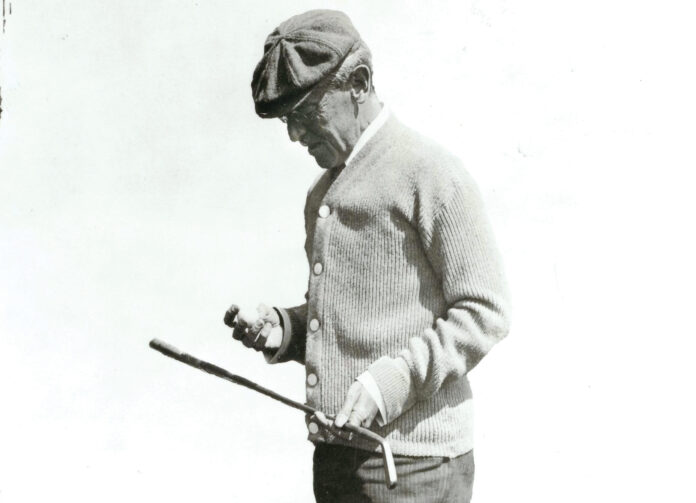On May 7, 1915, a German submarine torpedoed the British passenger liner RMS Lusitania en route from New York to Liverpool. Attacked without warning, the ship sank quickly, killing 1,198 civilians, including 128 Americans.
Woodrow Wilson immediately denounced the sinking of the Lusitania in harsh, threatening terms, demanding that Germany pledge to never launch another attack on citizens of neutral countries, even when traveling on French or British ships. Germany agreed, but only temporarily. In March, 1916, a German U-boat torpedoed the French passenger liner Sussex, causing a heavy loss of life and injuring several Americans.
Two months later, in what’s known as the Sussex pledge, German officials announced they would no longer sink Allied merchant ships without warning but made it clear that they would resume submarine attacks if the Allies refused to lift their blockades of food and raw materials bound for the Central Powers.
Despite further provocations, Wilson still hoped for a negotiated settlement until February 1, 1917, when Germany resumed submarine warfare against merchant ships, including those of the United States and other neutral countries. In response, Wilson broke off diplomatic relations with Germany.
Then, on February 25, the British intercepted and decoded a telegram from Germany’s foreign secretary Arthur Zimmermann to the German ambassador in Mexico. The so-called “Zimmermann Telegram” proposed that in the event of war with the United States, Germany and Mexico would form an alliance. In return, Germany promised to regain for Mexico its “lost provinces” of Texas, Arizona, and New Mexico.
The release of the Zimmermann Telegram ignited a public furor that was further enflamed by the loss of three U.S. merchant ships to German submarines. After much discussion, Wilson appeared before a Joint Session of Congress on April 2, 1917 and asked for a Declaration of War against Germany.
By the time the United States entered the war, German submarines were taking a catastrophic toll on supplies of provisions being shipped to Britain. In response, the British admiralty established a system of convoys in which merchant ships were grouped together and provided with warship escorts through the most dangerous stretches of the North Atlantic.
The convoys had a dramatic effect. By the end of 1917, the tonnage of Allied shipping lost each month to German U-boat attacks plummeted from one million tons in April to 350,000 tons in December. And while other factors were at play, the increase in provisions helped stiffen the resolve of Allied troops and thwarted Germany’s attempt to force Britain’s surrender.
So what does this have to do with golf? Not much! Except to say that Woodrow Wilson began playing upon his doctor’s advice to get outside and exercise at the age of 56, ultimately making “the game a daily ritual” and playing more rounds than any president. On the course, according to Sports Illustrated, Wilson was not called President Wilson but just Mr. Wilson who just came to play and “asked for no special favors and reasoned that all club rules applied equally to him as to others.
“Wilson was just a good fellow when he came on the links,” a friend said. “He forgot all about his office duties and just came out to enjoy himself. He and his friend and physician, Doctor Grayson, always came together, and they had some hot games, I’ll tell you. Both shot somewhere around 90. There was nothing snobbish about Wilson. He was just the same as you or I. He was always jolly. When he sliced his ball into the rough, he took it all as part of the game and never complained.”
In 1916, Wilson ran against Charles Evans Hughes in the presidential election. The day after the election, Wilson was on the course when he received urgent news that he had carried California and his reelection was assured. Wilson gave a smile, and continued with his round.
Enjoy your walk,
Suzy Evans, J.D., Ph.D.

